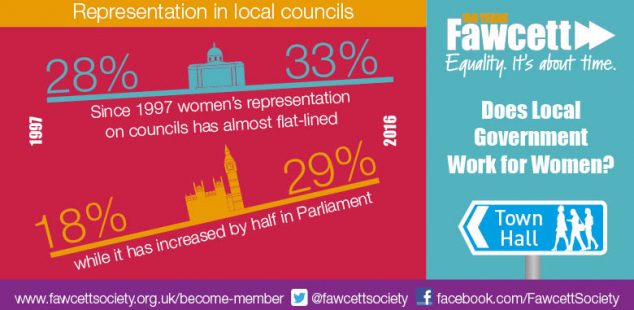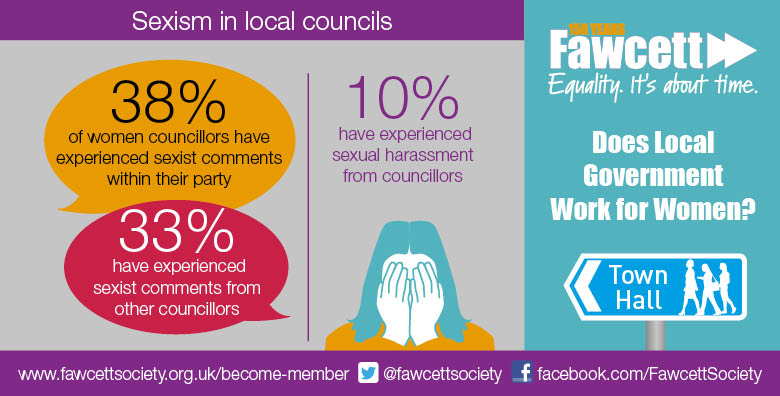By Paul Rushworth, The Equality Hub
Sexism is ‘commonplace’ in local government with 38% of female councillors having experienced sexist comments from within their own party, according to a recent report by The Fawcett Society.
The survey of over 2,300 councillors also found that a third of women councillors have experienced sexist comments in the council chamber and 43% say they are held back by assumptions about what they can do just because they are women.
More worrying still, one in ten have experienced sexual harassment from other councillors.
The findings are part of an interim report by the Local Government Commission – a year-long study led by the Fawcett Society in partnership with the Local Government Information Unit. The final report is expected to be published in the summer.
Sam Smethers, Fawcett Society Chief Executive, said:
“Women councillors from all major parties are reporting sexism and sexual harassment from within their own parties and from other councillors. This problem is not confined to one party, and is commonplace across local government.
“We are sadly used to hearing about the misogyny our politicians experience from the public via social media, but this research shows that they are also experiencing it from within their own parties, including their male council colleagues.”
Dame Margaret Hodge MP, co-chair of the Commission, comments: “We are seeing a culture in some parts of local government which would not be out of place in the 1970s. This in turn is linked to the under-representation of women in local government where we have seen very little progress over the past 20 years.”

Whilst the UK still ranks a lowly 48th in the world for gender equality in parliament, there has nevertheless been a marked improvement in womens’ representation over over the past 20 years, with an increase from 18% to 29%.
Conversely the picture in local government has barely changed at all. Twenty years ago, 28% of our councillors were women, and now that figure stands only slightly higher at 33%. Furthermore the number of female council leaders has barely changed either, up from 14% to 17% in 10 years.
The report found that long term, incumbent male councillors are part of the problem, slowing the rate of change. In 2016 men were 1.6 times more likely to be long term incumbent than women. Of those who have been in office for 20 years or more, there were three men for every one woman.
Cllr. Gillian Keegan, co chair of the Commission, said:
“Women’s under-representation combined with the slow turnover of male councillors is acting as a barrier to culture change. We also see women more likely to experience barriers such as lack of childcare, clashes with caring responsibilities and a lack of access to informal networks.
“As we now start to think about solutions we have to focus on how we remove some of these barriers to progress, such as through embracing new technology.”
The Local Government Commission’s final report will be published in the summer and will make recommendations on how to address the key issues faced by women councillors and the barriers to female representation in local government. It will draw on additional research to also look at women council officers and devolution.
Download the full interim report here: Does Local Government Work for Women (PDF)









